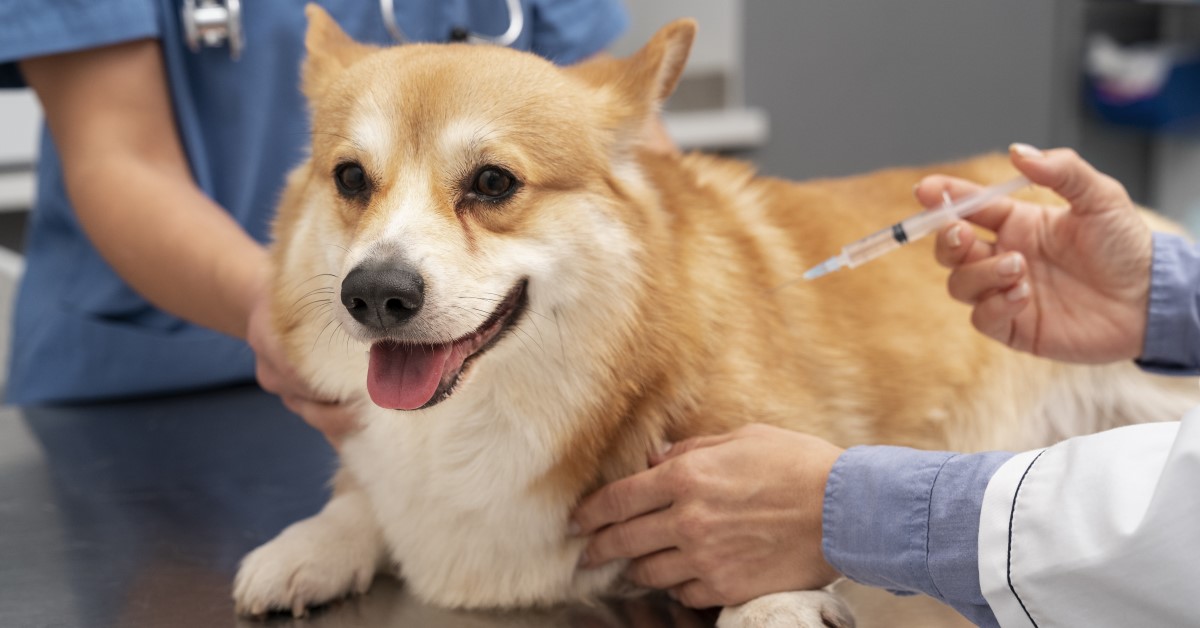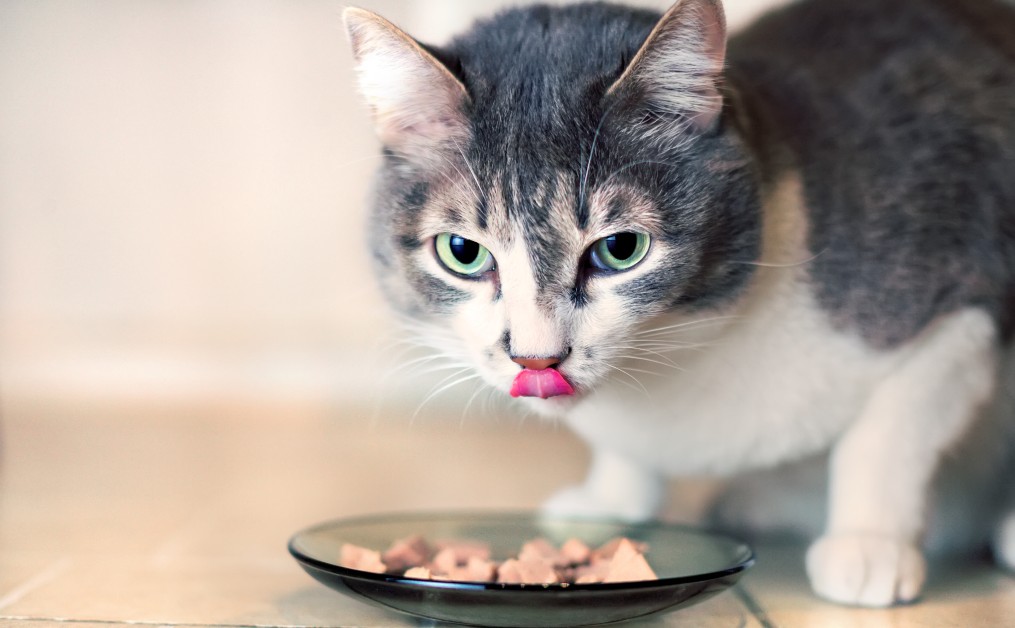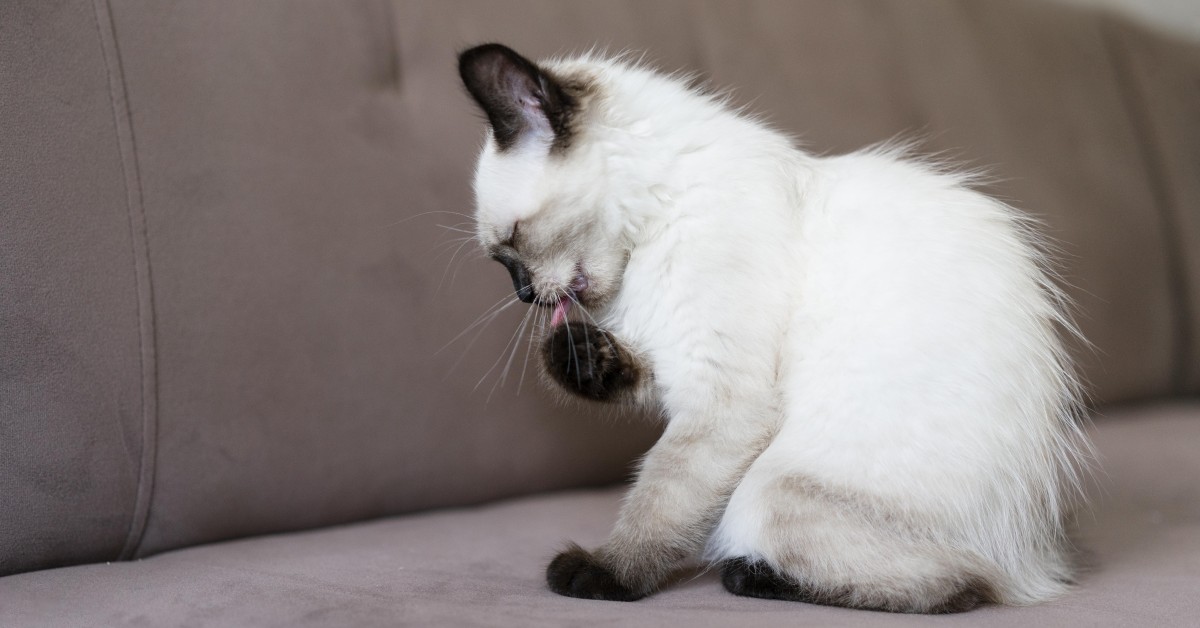Core Vaccinations: An Introduction
Core vaccinations help keep cats and dogs healthy by preparing their immune system to fight off infection.

Similar to humans, pets need vaccinations to remain healthy. Vaccines work by stimulating the immune system to recognize and fight off certain microorganisms, such as bacteria, viruses, and other harmful organisms. Once a cat or dog has been vaccinated, its immune system is better prepared to protect against future infections.
Core vs. Non-Core Vaccinations
Vaccinations for pets are classified as either core or non-core. A core vaccination is one that is recommended for all pets. Non-core vaccinations are generally recommended for certain pets by veterinarians based on the animal’s unique lifestyle and medical history.
Core Vaccinations for Dogs
Core vaccinations help keep puppies and adult dogs protected from common and serious contagious diseases. By exposing a dog to disease through vaccinations, the immune system can build up a defense against future exposure. It is important to remember that while vaccinations are essentially disease-causing microorganisms, they have been inactivated, meaning they don’t cause the disease.
Core vaccinations for dogs include:
Distemper
Canine distemper is a viral disease that can spread from one animal to another. While any dog can develop this condition, it is especially dangerous in puppies and immune-compromised dogs. Distemper vaccines can help reduce a dog’s risk of exposure. While it isn’t 100 percent effective against the disease, getting the proper dosage based on your vet’s recommendations can still provide your pet with protection.
Parvovirus
The parvovirus vaccination for dogs is often given as part of a combination injection known as DA2PP or DHPP. This combination injection protects pets against canine distemper, parvovirus, parainfluenza, and adenovirus type-2 (hepatitis). Due to the seriousness of this condition, it's recommended that all dogs receive a parvovirus vaccination. Parvo can cause serious gastrointestinal illness in dogs. Most pets who develop this condition will experience severe bloody diarrhea, loss of appetite, vomiting, lethargy, and fever.
Hepatitis
Canine adenovirus type 2, otherwise known as CAV-2, is a core vaccination that prevents canine adenovirus type 1, the cause of canine hepatitis. While fairly uncommon, cases of hepatitis in dogs still occur. Hepatitis is typically spread through the consumption of infected dog saliva, feces, urine, or discharge. It may be acute and occur suddenly or become chronic. Some breeds are predisposed to the disease, such as Chihuahuas, Labrador Retrievers, Standard Poodles, and Doberman Pinschers.
Rabies
Rabies in dogs can be a deadly disease caused by viruses in the genus Lyssavirus. Today, rabies is rare in dogs in the U.S. due to widespread vaccination programs with an animal considered to be immunized within 28 days of receiving the vaccine. Most vets recommend that dogs receive their first rabies shot around three months of age. A booster should then be administered approximately one year later.
Core Vaccinations for Cats
Keeping your feline friend healthy means keeping up on core vaccinations. It’s recommended for kittens to receive their first set of shots around six to eight weeks of age. These first shots are generally administered over the course of two to three months. It’s important to remember that an entire series of shots should be administered to ensure maximum protection. After one year of age, your cat will need boosters.
Core vaccinations for cats include:
Feline Panleukopenia Virus
Feline panleukopenia virus is a form of feline distemper that is highly fatal to cats. Cats who become infected with the virus will often develop severe diarrhea, vomiting, secondary dehydration, and pyrexia. Many cats also develop secondary infections. While any cat can develop this condition, it is most common in felines under one year of age who are strays or sheltered, in pet stores, in boarding facilities, or are unvaccinated.
Rabies
The rabies virus is a serious condition that can be fatal for unvaccinated cats. In addition, many states require unvaccinated cats who are exposed to rabid animals to be euthanized, making rabies vaccinations even more critical. While the rabies virus cannot survive for long outside of a mammal’s body, it can be spread through the saliva of infected animals. There is no treatment for rabies infections in cats.
Feline Rhinotracheitis
Feline viral rhinotracheitis (FVR), otherwise known as herpesvirus infection, can affect cats of all ages. It is a major cause of upper respiratory disease in felines and the leading cause of conjunctivitis. Cats can develop this condition when exposed to virus particles. FVR is most commonly spread from the saliva or discharge of the nose or eyes of an infected cat. While treatment is available for feline rhinotracheitis, it is best to avoid the illness through a routine vaccination.
Feline Calicivirus
Feline calicivirus can cause upper respiratory infections, as well as oral diseases in cats. While most cases of feline calicivirus will cause typical upper respiratory infection symptoms, some strains can lead to sudden painful lameness in one or multiple joints. This condition is highly contagious and is most commonly spread through saliva or secretions of the eyes or nose. Symptoms are often the most severe in young kittens.
Importance of Vaccinating Your Pet
Vaccinations are a crucial part of preventative healthcare for pets. They’re also a cost-effective way to prevent many pet illnesses. While no medication is without risk, the benefits of vaccinating your pet far outweigh any possible risks. If your pet experiences an adverse reaction or you’re not sure what core or non-core vaccinations your pet needs, reach out to your vet for guidance.
Ready to start saving money on pet wellness care?
Then take a look at Mint Wellness, the pet wellness plan that provides fast reimbursement on routine pet care. Save on vaccinations, wellness exams, preventatives, dental, and more!
Learn More


